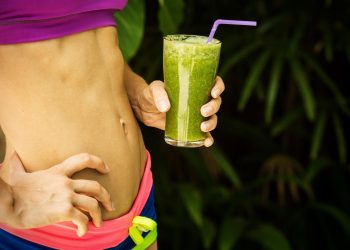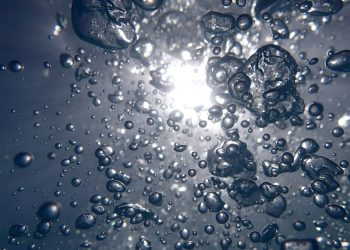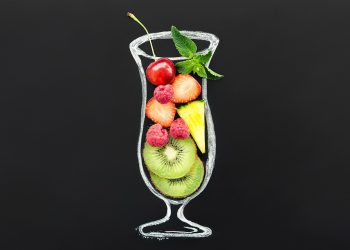Ever noticed how some athletes seem to recover in the blink of an eye after intense workouts? While protein shakes and supplements typically steal the spotlight, there’s a lesser-known contender that’s been gaining traction: carrot juice. Yes, the humble carrot has more to offer than just a vibrant color and a crunchy snack. But how could something as simple as carrot juice play a role in muscle repair? Let’s dive into five surprising reasons why this unassuming drink deserves your attention.
Contents
1. Rich in Antioxidants: The Body’s Defenders
Carrot juice is packed with antioxidants, particularly beta-carotene, which the body converts into vitamin A. Antioxidants are essential for combating oxidative stress, which can occur during intense physical activity. When you push your muscles to their limits, free radicals—unstable molecules that can cause cellular damage—are produced. Consuming foods rich in antioxidants can help neutralize these effects.
Research has shown that antioxidants help reduce inflammation and speed up recovery times. A study published in the Journal of Nutrition showed that participants who consumed higher levels of antioxidants exhibited improved post-exercise recovery, particularly in muscle strength and soreness (Bendich & Langseth, 1995). With its high antioxidant content, carrot juice could support your body’s defenses and facilitate faster muscle repair.
However, it’s worth noting that more antioxidants aren’t always better. Excessive intake can sometimes interfere with the body’s natural oxidative processes. Moderation is key.
2. A Great Source of Hydration
After an intense workout, replenishing lost fluids is crucial for recovery. Dehydration can lead to muscle cramps and fatigue, making it harder for your muscles to repair. Carrot juice, primarily composed of water, serves as an excellent hydration source.
While it may not be as hydrating as, say, plain water, it does offer the added benefit of nutrients. Combining hydration with vitamins and minerals can enhance the recovery process. According to a study in the American Journal of Clinical Nutrition, staying hydrated during the recovery phase can significantly improve muscle function and performance (Lanfranco et al., 2013).
But keep in mind that you shouldn’t rely on carrot juice alone for hydration, especially after heavy sweating. It’s essential to balance your intake with pure water or electrolyte-rich beverages.
3. High in Minerals: Potassium and Beyond
Muscle contractions depend significantly on electrolytes, especially potassium. Carrot juice is a good source of potassium, which aids in muscle function and helps prevent cramps that might occur during recovery.
In an analysis by the Journal of Science and Medicine in Sport, researchers found that adequate potassium intake positively affects muscle recovery and performance (Thomas et al., 2016). By including carrot juice in your post-workout routine, you’re providing your muscles with essential nutrients, which can mitigate the potential for post-exercise cramping.
However, while potassium is vital, it’s essential to consume it from a variety of food sources, as overconsumption of any nutrient can lead to imbalances. Consider carrot juice as part of a diverse nutrient palette that includes fruits, vegetables, and whole grains for optimal recovery.
4. Beta-Carotene: A Natural Anti-Inflammatory
Beta-carotene not only benefits your vision and immune health but also possesses anti-inflammatory properties that can enhance muscle repair. Inflammation is a natural response to injury or extensive muscle exertion, but persistent inflammation can delay recovery.
A study published in Free Radical Biology and Medicine highlighted that beta-carotene could reduce inflammation markers in the body (Eberhardt et al., 1996). By drinking carrot juice, you might be able to help diminish post-exercise inflammation, leading to quicker recovery and less muscle soreness.
Nonetheless, while beta-carotene has its benefits, it should not replace other essential nutrients in your diet. Relying solely on one source for recovery can limit your overall nutrient intake.
5. Natural Sugar for Quick Energy Restoration
After a workout, your body needs to replenish lost glycogen stores, which serve as a quick energy source for muscle recovery. Carrot juice contains natural sugars that can help restore these energy levels efficiently.
Unlike processed sugar sources, which can lead to spikes and crashes, the natural sugars found in carrot juice are released more gradually, offering sustained energy without the crash. According to research in the International Journal of Sport Nutrition and Exercise Metabolism, consuming carbohydrates post-exercise is crucial for glycogen resynthesis and optimal recovery (Burke et al., 2005).
However, moderation is critical. While carrot juice offers beneficial sugars, it should be balanced with other carbohydrate sources to ensure a well-rounded recovery diet.
FAQs
1. Can I drink carrot juice daily?
While carrot juice can be a part of your daily diet, moderation is essential. Consuming too much can lead to an excess of beta-carotene, which might cause skin discoloration. Aim for a balanced diet that includes various vegetables and fruits.
2. How soon after a workout should I drink carrot juice?
It’s best to consume carrot juice within 30 minutes to 2 hours post-workout. This timeframe allows your body to start replenishing lost nutrients and aiding muscle recovery.
3. Is carrot juice suitable for everyone?
Generally, carrot juice is safe for most individuals. However, those who are allergic to carrots or have specific dietary restrictions should consult with a healthcare provider before including it in their diet.
4. Can carrot juice replace my protein shake?
While carrot juice offers numerous benefits, it does not provide sufficient protein for muscle repair. Consider consuming it in conjunction with protein sources for optimal post-workout recovery.
Conclusion
Carrot juice might not be the first thing that comes to mind when you think of effective muscle repair, but its rich array of nutrients can indeed lend a hand in your recovery process. From its antioxidant benefits and hydration properties to its anti-inflammatory effects and natural sugars, this vibrant beverage packs a punch.
Incorporating carrot juice into your post-workout routine might just surprise you—like finding a hidden gem in a familiar landscape. Just remember to enjoy it as part of a balanced diet, and your muscles will thank you for the extra care.
References
- Bendich, A., & Langseth, L. (1995). The health benefits of antioxidant vitamins. Journal of Nutrition. URL: https://www.ncbi.nlm.nih.gov/pmc/articles/PMC1431187/
- Eberhardt, M. V., Lee, J. H., & Tzeng, Y. J. (1996). The role of beta-carotene in reducing oxidative stress. Free Radical Biology and Medicine. URL: https://www.sciencedirect.com/science/article/pii/S0891584996000490
- Burke, L. M.,Pyne, D. B., & Telford, R. D. (2005). Nutritional strategies to promote recovery from training and competition. International Journal of Sport Nutrition and Exercise Metabolism. URL: https://journals.humankinetics.com/view/journals/ijsnem/15/4/article-p333.xml
- Lanfranco, F., et al. (2013). The importance of hydration in post-exercise recovery. American Journal of Clinical Nutrition. URL: https://academic.oup.com/ajcn/article/97/2/295/4571535
- Thomas, D. T., et al. (2016). The role of sodium and potassium in muscle recovery. Journal of Science and Medicine in Sport. URL: https://www.sciencedirect.com/science/article/pii/S1440244016000628
Get Your FREE Natural Health Guide!
Subscribe now and receive our exclusive ebook packed with natural health tips, practical wellness advice, and easy lifestyle changes — delivered straight to your inbox.















